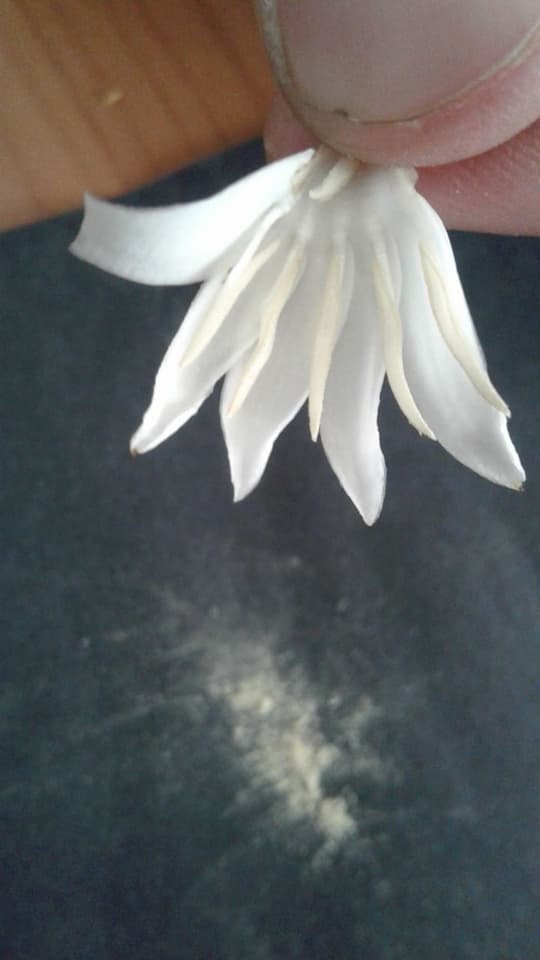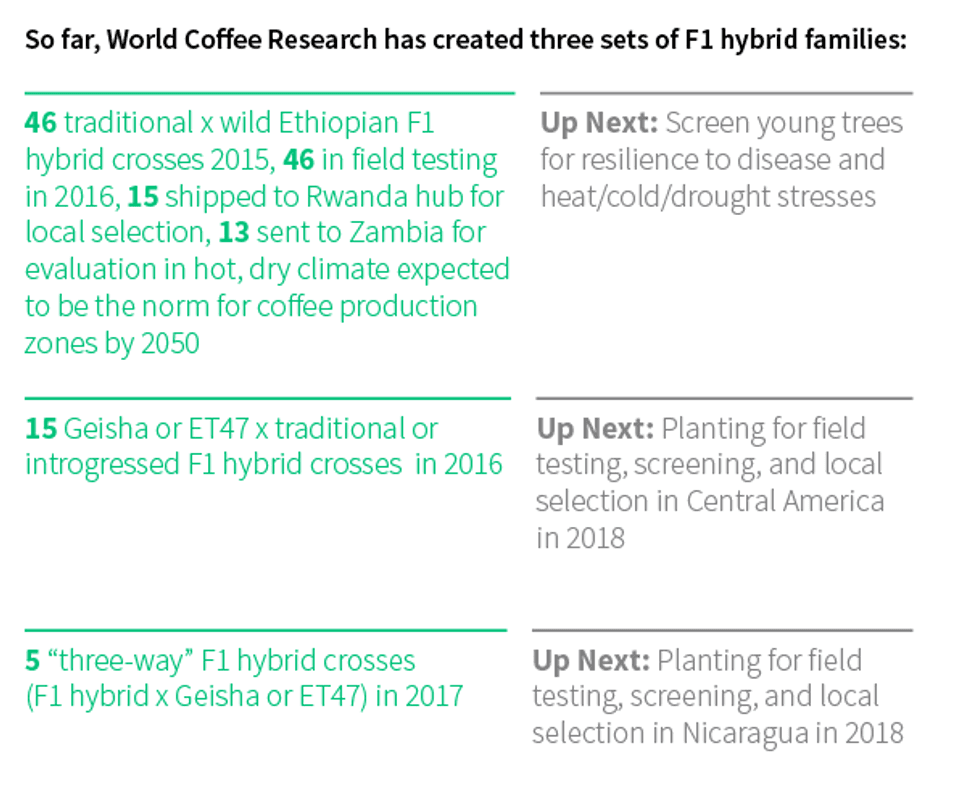Two new groups of F1 hybrid crosses in 2017/2018!
WCR celebrates the creation of five “three-way” hybrid crosses
One of World Coffee Research’s prime focuses is on coffee genetic improvement through the breeding of new varieties. With the a rising tide of challenges facing coffee farmers in the 21st century, this work is vital.
The preparation of a new generation of F1 hybrid varieties is key to this work; WCR aims to realize locally adapted selections for farmers in Central America and Africa as early as 2025. Varieties will be selected for different traits depending on the needs of local producers.
F1 hybrids are new varieties made of the offspring of first generation (thus “F1”) crosses between genetically distinct Arabica parents (for example, a wild Ethiopian variety x Caturra). Breeding F1 hybrid varieties allows us to take advance of "hybrid vigor," which can translate to significant yield increases (up to 20-40% over the current standards), high cup quality potential (some capable of scoring 90+ points), and overall vigor and tolerance to stressors like frost, diseases and pests, including coffee leaf rust.
Three new sets of hybrid crosses in 2017-2018
In late 2016, we created an additional group of 15 F1 hybrid families by crossing Ethiopian landrace varieties Geisha and ET47 (the mother plants) with traditional and/or introgressed varieties Obata, T5175, Costa Rica 95, Marsellesa, and San Isidro 34 (the fathers). These will be transplanted to the field in 2018

Pollen from a Marsellesa plant is being collected. The pollen will be transferred by hand to a plant from the genetically diverse Core Collection mother plant to make an F1 hybrid cross.
In 2017, we created our first-ever "three way" F1 hybrid crosses. A three-way hybrid is made when an existing F1 hybrid is used as one of the parent plants for a new F1 hybrid cross. In 2017, WCR created four such three-way hybrid populations using F1 hybrids Centeroamericano and H3 as the mother plants and Geisha and ET47 as the fathers. (The final crosses are: Centroamerica x Geisha, H3 x Geisha, Centromerica x ET47, H3 x ET47). We will evaluate these crosses to see if they combine the high performance of the mother F1 hybrids with the known high cup quality potential of their landrace fathers. We will transfer the three way F1 hybrid crosses to the field for testing, screening and local selection in Nicaragua in 2018.
And finally, in February 2018, unexpected heavy rain caused coffee plants at our research farm in El Salvador to flower early. We decided to take advantage of the flowering of plants in the WCR Core Collection to made a last-minute set of crosses using Marsellesa (a rust-resistant Sarchimor-type variety) as the father, and crossing it with 10 different mother plants from the genetically diverse Core Collection (accessions 4476, 4612, 4558, 21265, 21292, 4575, 4872, 4617, 4828 and 4544). The resulting seeds will be germinated and transplanted to the field in late 2018.
In total, WCR has now created 75 F1 hybrid crosses in Central America!

An update on our F1 hybrid breeding program from the 2017 Annual Report.
The long road to farmers
Just because we have made 75 hybrid crosses doesn't mean that in a few years there will be 75 new hybrid varieties available to farmers. On the contrary! In the end, we will work with our partners in each country to evaluate and select only a small handful from this group of 75 that show the greatest promise for farmers.
Different options will be selected for different traits—farmers at lower and middle altitudes need varieties that will be tolerant to rising temperatures and heat stress. Meanwhile, farmers at higher altitudes, which typically have fewer issues with heat stress and disease/pest problems and are capable of producing high cup quality, may need varieties that produce exceptional cup quality.
The first varieties for farmers from this group of experimental crosses could be available as early as 2025.